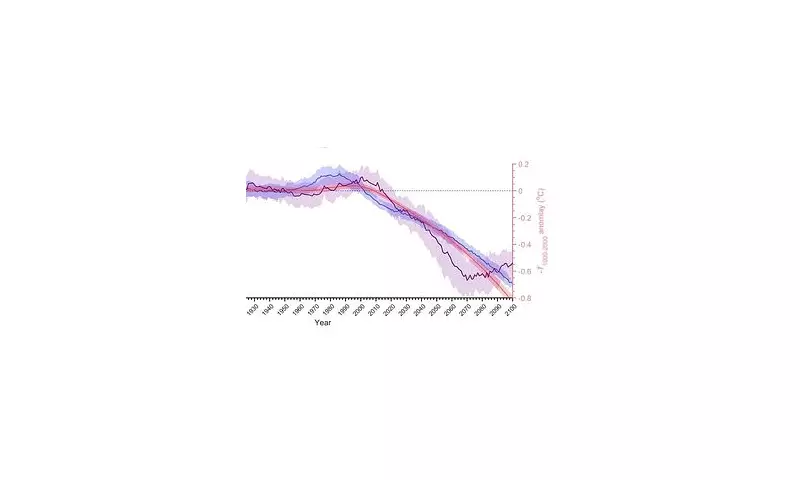
Climate scientists have issued a stark warning that the Gulf Stream system could be heading for catastrophic collapse, an event that would trigger a new ice age across the northern hemisphere and send temperatures in Britain plunging to as low as -30°C.
The Atlantic's Failing Conveyor Belt
Researchers from China's Institute of Oceanology and the University of California, San Diego have discovered a crucial warning signal hidden deep beneath the ocean surface. Their analysis reveals a distinctive temperature fingerprint at depths between 1,000 and 2,000 metres in the equatorial Atlantic, indicating the Atlantic Meridional Overturning Circulation (AMOC) has been weakening for decades.
The AMOC, often described as the ocean's conveyor belt, plays a vital role in regulating our climate. It transports warm surface water from the tropics northward, keeping Europe, the UK and America's east coast significantly warmer than they would otherwise be. Without this natural heating system, our climate would be unrecognisable.
The Climate Change Connection
The engine driving this crucial current system lies off Greenland's coast, where climate change is accelerating ice melt. As more freshwater flows into the North Atlantic from melting glaciers, it disrupts the delicate balance that keeps the AMOC functioning. The less dense freshwater prevents the cooling, salty water from sinking properly, effectively slowing down the entire circulation system.
Using sophisticated climate modelling from the Massachusetts Institute of Technology General Circulation Model (MITgcm), the research team traced how energy waves known as 'baroclinic Kelvin waves' spread rapidly toward the equator when the AMOC weakens. Their projections indicate this mid-depth warming trend has become clearly detectable since the early 2000s, suggesting the slowdown began in the late 20th century.
Britain's Chilling Future
If the AMOC were to collapse completely, the consequences for Britain and northern Europe would be devastating. Professor Jonathan Bamber from the University of Bristol warns that northwest Europe's climate would become unrecognisable, with temperatures dropping by up to 15°C in some regions.
"It would be several degrees cooler so that winters would be more typical of Arctic Canada and precipitation would decrease also," Professor Bamber told the Daily Mail. "Very harsh, cold winters would certainly be a threat to life."
The research, published in Communications Earth & Environment, confirms that temperature variations at mid-depth provide a more reliable indicator of AMOC strength than surface temperatures, which can be distorted by atmospheric variability from solar radiation and volcanic activity.
While climate models have long predicted AMOC decline due to human-caused greenhouse gas emissions, this study provides the first clear observational evidence that the slowdown is already underway. The researchers describe the equatorial Atlantic as a critical crossroads for monitoring the health of this vital climate regulator.





